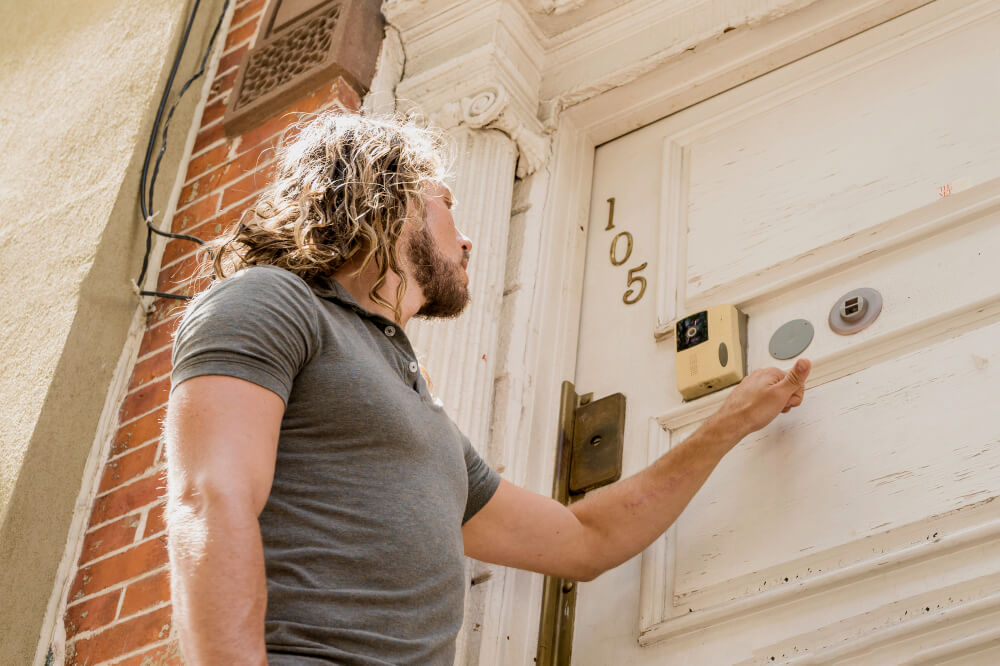In the landlord-tenant relationship, the landlord has certain rights and responsibilities, one of which is access to a tenant’s dwelling for repairs and maintenance.
However, this access is not unlimited and must adhere to specific guidelines and regulations outlined in landlord-tenant laws.



In this blog, we’ll discuss the landlord’s responsibility for entering a tenant’s house for repairs or maintenance work:
Legal Guidelines
In the United States, landlord-tenant laws vary by state and locality. However, there are general principles that most jurisdictions follow regarding a landlord’s responsibilities when entering a tenant’s house for repairs or maintenance:
Notice Requirement:
Landlords typically need to provide reasonable notice before entering a tenant’s property for non-emergency situations, such as repairs or maintenance. The notice period can vary by state but commonly ranges from 24 to 48 hours.
Situations in which the landlord does not need to give prior notice:
Landlords need to give a prior notice to the tenant if they want to visit the property for the regular inspection or the maintenance and repairs. However, there are certain situations in which the landlord doesn’t need to give a prior notice:
- Emergencies: Landlords can enter the house without notice in emergencies when there are safety concerns to the house or the tenant like a gas leak, burst pipe, flooding, fire, etc. to prevent further damage to property and life.
- Tenant’s consent: If the tenant has given permission to enter the premises for the repair and maintenance work then the landlord need not to send any notice.
- Abandoned property: If there is reasonable evidence that the tenant has abandoned the property like no communication for a long time, removal of the belongings from the house, non-payment of rent, etc.
- Legal resources or court orders: In some legal matters or the involvment of the court orders,the landlord can enter without any prior notice.
Permissible Hours:
Landlords must respect reasonable hours when entering a tenant’s residence. These hours are usually during daytime hours and within certain time frames specified by law, avoiding intrusion during inconvenient times like late evenings or early mornings.
Purpose of Entry:
Landlords can only enter a tenant’s property for specific reasons, such as making necessary repairs, performing maintenance, conducting inspections (with proper notice), or showing the property to potential buyers or tenants (usually with advanced notice as well).
Respecting Tenant Privacy:
Landlords are obligated to respect a tenant’s privacy and not use their access for reasons unrelated to property maintenance or emergencies. They should not snoop around or infringe on the tenant’s rights.
Non-Discrimination:
Landlords cannot discriminate against tenants or invade their privacy based on protected characteristics such as race, gender, religion, or disability.
Best Practices for Landlords and Tenants
- Communication is Key: Both parties should maintain open communication. Tenants should promptly report maintenance issues to landlords, and landlords should communicate clearly about entry for repairs or inspections.
- Documentation: Landlords should document all requests for entry, including the purpose, date, and time of entry, as well as any communication with the tenant regarding the entry.
- Mutual Respect: Tenants and landlords should respect each other’s rights and privacy. Landlords should not abuse their right of entry, and tenants should allow reasonable access for necessary repairs or maintenance.
Conclusion:
Landlords have the responsibility to ensure the habitability of the property they rent out, which includes promptly addressing repair and maintenance issues. However, they must do so while respecting the tenant’s right to privacy and providing adequate notice before entering the premises. Understanding and following these legal guidelines contribute to a more harmonious landlord-tenant relationship.
Before taking any action, both landlords and tenants should familiarize themselves with their specific state or local laws to ensure compliance with the regulations governing entry into a tenant’s house for repairs or maintenance work. Explore our website and check out the free webinar training from industry experts on similar topics.




